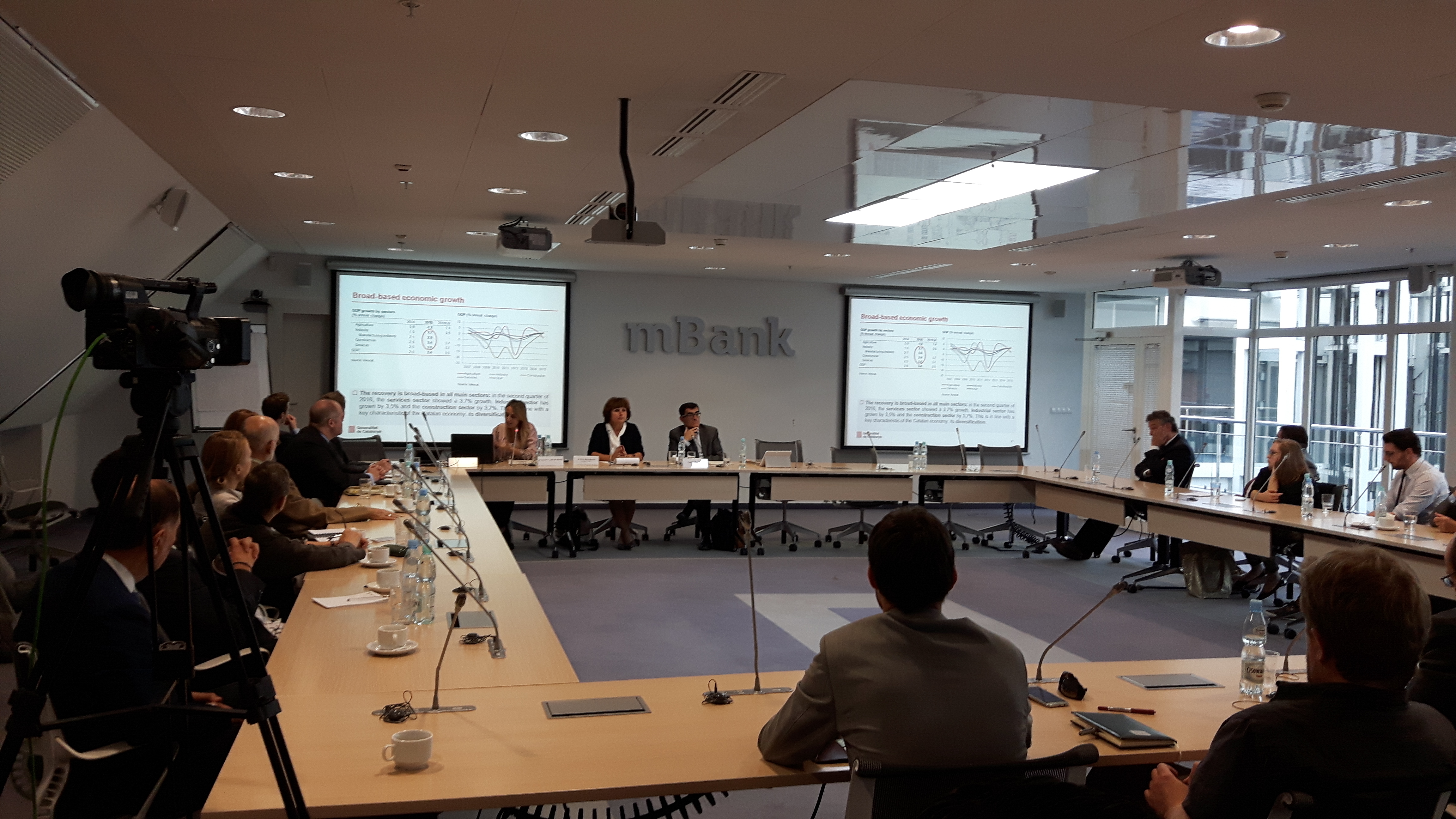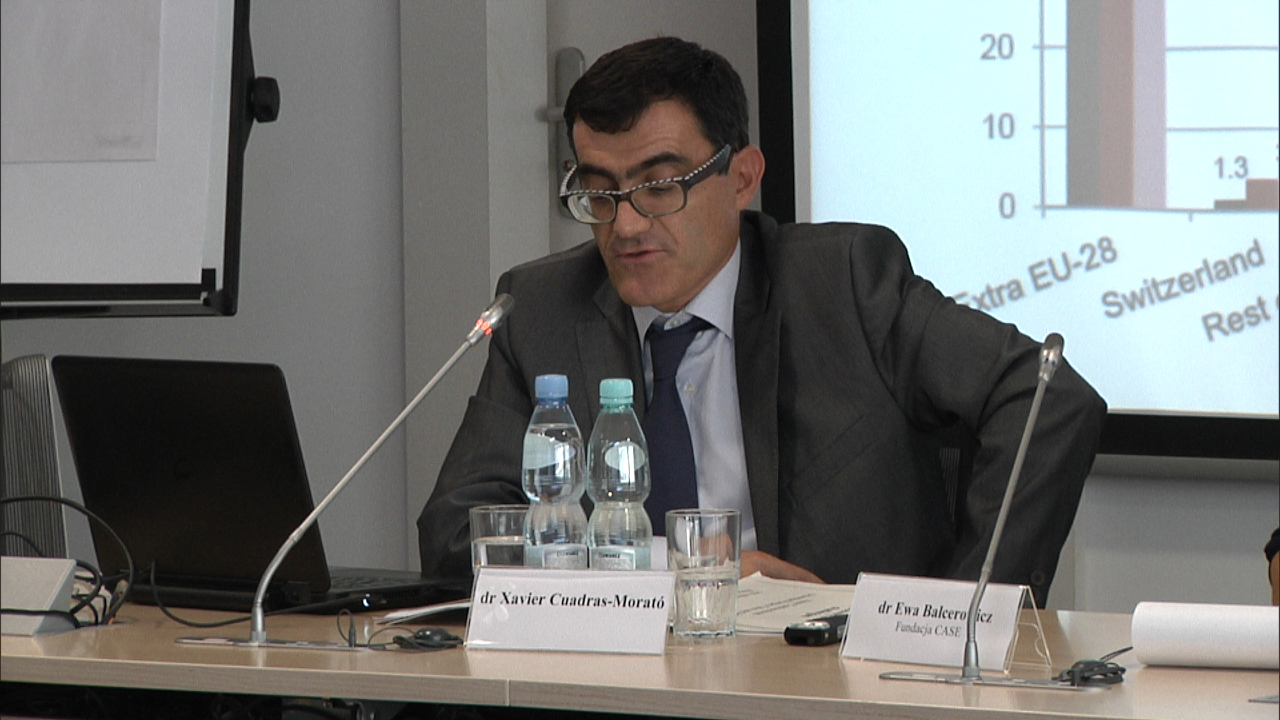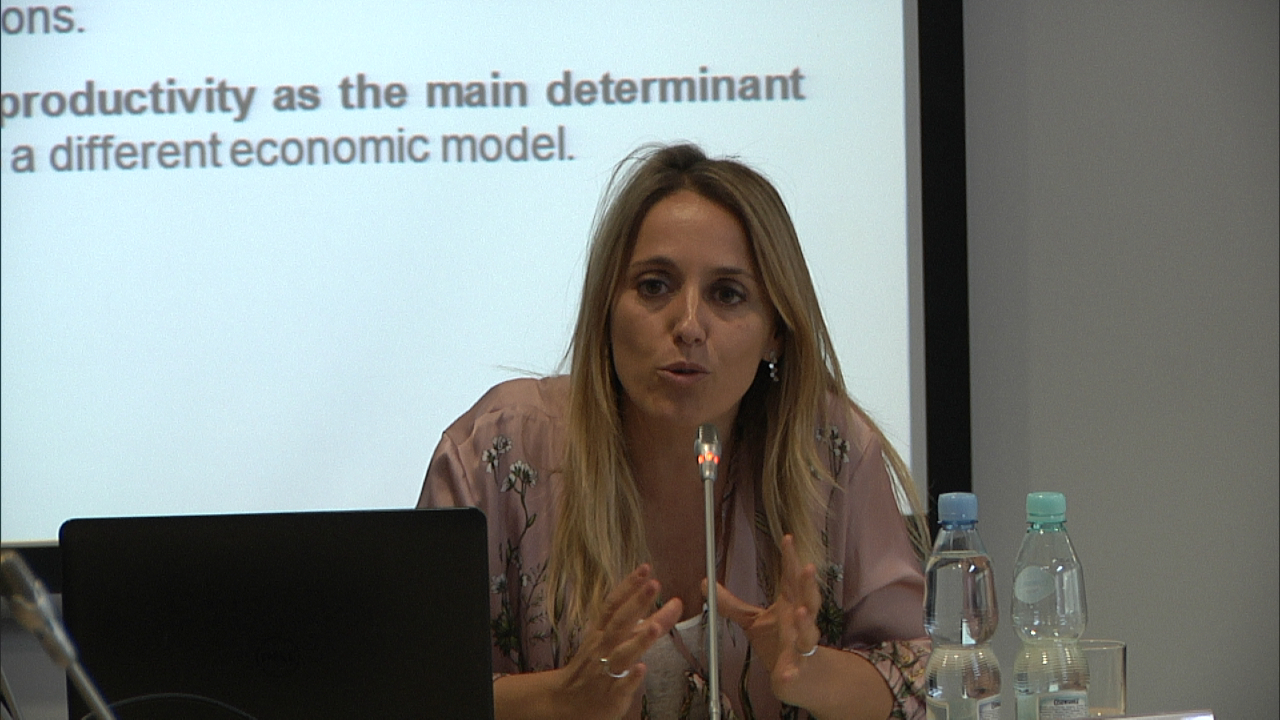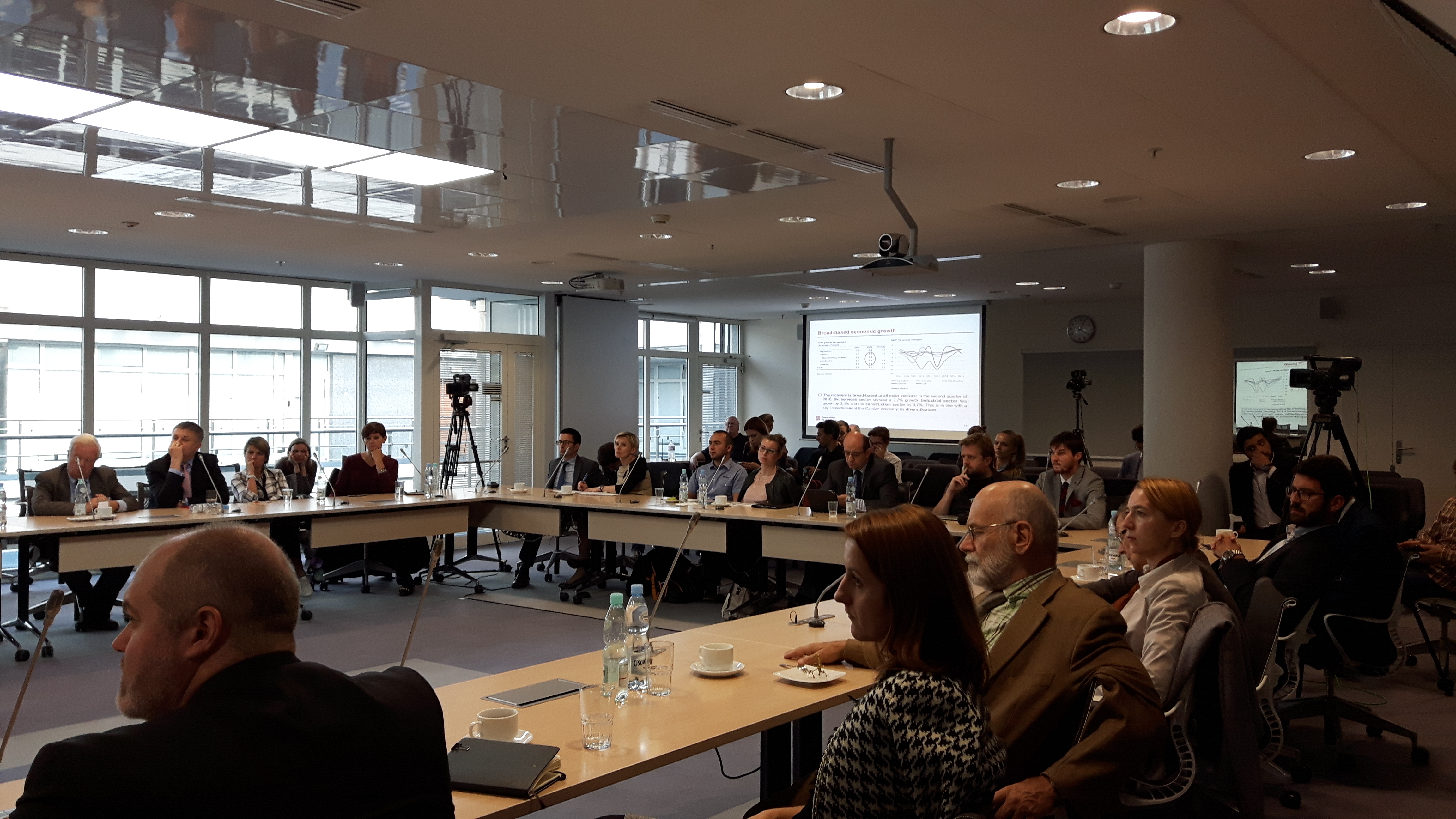07 Oct 2016
The Catalan Economy: Crisis, Recovery and Policy Challenges: 145th mBank-CASE Seminar
Catalonia is one of the richest regions in Spain. Until the outbreak of the international financial and economic crisis in 2008, it had enjoyed a phenomenal economic boom which then turned into a very severe depression, from which it has only started exiting in 2015. Dr. Xavier Cuadras-Morató*, from the University Pompeu Fabra in Barcelona and guest of the 145th mBank-CASE Seminar, discussed the crisis and subsequent recovery of the Catalan economy. According to the expert, consolidating the recovery and making the economy more competitive, resilient, and less volatile are the key challenges of economic policy in Catalonia. He also stated that in order to improve the level of social cohesion of the country, policymakers should make sure that economic prosperity is more widely shared and transformed into effective social progress.

Catalonia: territory, population and economy
Catalonia is a relatively small region, occupying only 6.3 percent of total Spanish territory. But what it lacks in area, it makes up for in population density and cultural diversity, containing over 16 percent of the total Spanish population, of which roughly 19 percent are non-Spanish immigrants. At the aggregate level, Catalonia could be described as a comparatively rich region. For instance, in 2014, Catalan gross domestic product (GDP) at current prices accounted for nearly 20 percent of total Spanish GDP. In comparative terms, this roughly equals total GDP in Ireland or Finland. Meanwhile, GDP per capita in Catalonia was nearly 20 percent above overall Spanish levels in 2014, putting the small region’s GDP per capita on par with levels observed in both France and the United Kingdom.
However, during the 145th mBank-CASE seminar, Dr. Xavier Cuadras-Morató showed that these impressive headline numbers could be masking significant underlying structural issues. To illustrate this point, Dr. Cuadras-Morató led seminar participants through three very distinct periods of economic change in Catalonia with his presentation titled “The Catalan Economy: Crisis, Recovery and Policy Challenges.”

Period one: Economic miracle (1999-2008)
With its accession to the Euro-area in January 1999, and with the introduction of euro banknotes in January 2002, Spain began to benefit from an increasingly stable macroeconomic landscape. This carried significant benefits for the Catalan economy. For instance, between 1999 and 2008, Catalonia experienced greater price stability, economic growth that approached nearly 4 percent, and employment growth reaching as high as 6 percent.
However, Dr. Cuadras-Morató showed how a lack of structural reforms and financial market vigilance during this period of high growth sowed the seeds for significant macroeconomic imbalances for Catalonia and the rest of Spain. For instance, between 1999 and 2008, Spanish private sector debt to GDP increased from roughly 93 percent to nearly 200 percent and the current account deficit grew from roughly € 20 billion to nearly € 104 billion. At the same time, real estate construction experienced a boom and then came to a near complete halt in 2008. Meanwhile, banking and financial market debt was increasingly growing. The fragility of public finances then emerged during the beginning of the global financial meltdown, exposing a crisis in Catalonia and the rest of Spain that was founded on three self-reinforcing pillars—exhausted fiscal policy, staggering levels of debt, and a lack of economic growth and competitiveness to turn the economy around.
Period two: Crisis and adjustment process (2009-2014)
The ensuing deep recession that plagued the Catalan economy, and Spain as a whole, led to bank bailouts and difficult macroeconomic policy trade-offs. For instance, Dr. Cuadras-Morató demonstrated that authorities were faced with the dilemma of implementing structural reforms capable of increasing economic competitiveness in an attempt to reinvigorate growth, while also undergoing tough fiscal policy austerity measures to reign in public sector debt. This was further complicated given that Spain’s operating currency is the euro, forcing authorities to resort to internal devaluation, or, more accurately, structural reforms that stymie domestic wage growth.
Period three: Recovery (2014-2016)
There are signs of recovery from the painful 2009-2013 recession in Catalonia and the rest of Spain. For instance, in 2015, GDP growth in Catalonia rebounded to nearly 3.5 percent with employment growth returning to roughly 2 percent.
However, Dr. Cuadras-Morató points out that double-digit unemployment levels imply the dysfunctional labor market that existed pre-crisis continues to linger. Further, ongoing pressure to bring order to Catalan’s fiscal budget has resulted in a lack of social spending programs in the region, which has created an environment of rising inequality. Fiscal austerity measures also appear to be holding back efforts to promote research and development and to better education, which could potentially lead to an important change in the overall growth model of the Catalan economy. Dr. Cuadras-Morató believes that the lack of social progress and availability of funds to implement much needed reforms could continue to be one of the key ongoing political debates in Catalonia.

Policy challenges
Following Dr. Cuadras-Morató’s presentation, Dr. Natàlia Mas-Guix** provided comments that echoed the concerns and challenges in Catalonia and the rest of Spain. In her presentation, Dr. Mas-Guix stressed the importance of mitigating the impacts from a weak external environment by enhancing productivity and innovation, creating better employment opportunities, and broadening the export base of the Catalan economy. This led to a fruitful discussion among presenters and seminar participants, touching on a wide range of topics, including the remaining challenges for Catalonia and Spain as a whole, the current state of play in Catalan’s financial markets, and the importance of social progress.

Watch the seminar online: bankier.TV (in Polish)
* Xavier Cuadras-Morató, Associate Professor Titular in the Department of Economics and Business at the Universitat Pompeu Fabra, Director of the Escola Superior de Comerç Internacional (ESCI-UPF), International Business School. Holds PhD in Economics from the University of York (United Kingdom).
** Natàlia Mas-Guix, Director General for Economic Analysis at the Department of the Vice Presidency, Economy and Finance from the Catalan Regional Government.


